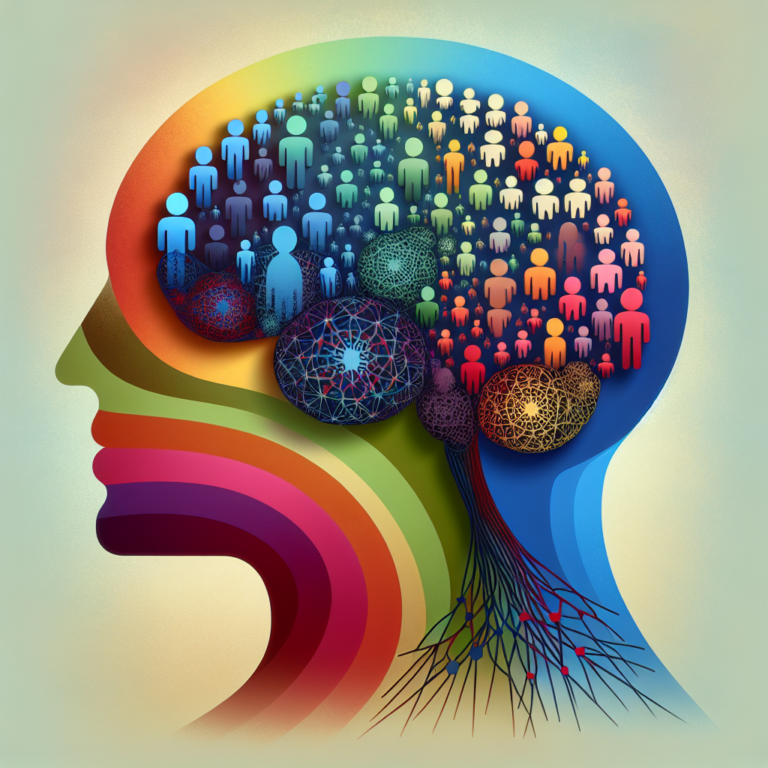
Introduction: A New Frontier in Genetics
Imagine a world where our biological fate isn’t solely dictated by the genetic code engraved in our DNA—where environmental factors and lifestyle choices can influence how genes are expressed. This idea invites us into the exciting realm of epigenetics. Beyond DNA: How Epigenetics Influences Our Biological Destiny is not just a scientific nuance; it is a revolutionary perspective that reshapes our understanding of biology, health, and identity.
In this comprehensive exploration, we will dive into the fundamental principles of epigenetics, unravel its implications, and consider real-world applications that highlight how our choices shape our destinies.
What is Epigenetics?
Understanding the Basics
At its core, epigenetics refers to changes in gene activity that do not involve alterations to the underlying DNA sequence. Think of DNA as a set of instructions, while epigenetics represents the context and conditions under which these instructions are read or expressed.
Key Mechanisms of Epigenetic Regulation
- DNA Methylation: The addition of methyl groups to DNA can silence gene expression.
- Histone Modification: Proteins around which DNA is wrapped can be altered, influencing gene accessibility.
- Non-coding RNA: These molecules can regulate gene expression without coding for proteins.
These mechanisms present a dynamic interaction between genetics and the environment, shedding light on Beyond DNA: How Epigenetics Influences Our Biological Destiny.
The Epigenetic Landscape: Nature vs. Nurture
A Closer Look at Gene Expression
The debate between genetics (nature) and environment (nurture) has dominated scientific discourse for decades. Epigenetics serves as a bridge, illustrating that our biological destiny is influenced by both aspects.
Table 1: Nature vs. Nurture
| Factor | Nature (Genetics) | Nurture (Environment & Lifestyle) |
|---|---|---|
| DNA Sequence | Fixed at conception | Variable, influenced by experiences and choices |
| Gene Expression | Predetermined | Can be modified by lifestyle choices, stress, diet, etc. |
| Heritability | Passed from parents | May be changeable over generations through epigenetic mechanisms |
Case Study: The Agouti Mice
A landmark study with agouti mice illustrated epigenetic principles perfectly. When fed a diet rich in methyl donors, these mice produced offspring with darker coats. This phenomenon arises from diet-induced epigenetic changes that influence gene expression, demonstrating the concept of Beyond DNA: How Epigenetics Influences Our Biological Destiny.
Analysis: This case study emphasizes the power of environmental factors in shaping biological outcomes, revealing that even genetic predispositions can be altered through lifestyle choices.
Epigenetics in Health and Disease
The Role of Epigenetics in Disease Prevention
Epigenetic changes are implicated in various health conditions, including cancer, mental health disorders, and cardiovascular diseases. Understanding how these factors play a role opens new pathways for prevention and treatment.
Case Study: Cancer and Epigenetics
Researchers have discovered that epigenetic alterations can activate oncogenes (cancer-promoting genes) or silence tumor suppressor genes. By using drugs that inhibit epigenetic changes, there is potential for innovative cancer therapies.
Analysis: This case study illustrates the proactive role individuals can take in influencing their health trajectory through epigenetic understanding, reinforcing the concept of Beyond DNA: How Epigenetics Influences Our Biological Destiny.
Dietary Influences on Epigenetics
What we eat can have profound epigenetic effects. Certain foods are rich in nutrients that can modify gene expression through epigenetic mechanisms.
Table 2: Dietary Influences on Epigenetics
| Food Type | Epigenetic Effect |
|---|---|
| Green Leafy Vegetables | Promote DNA methylation |
| Berries | Combat oxidative stress, promoting gene expression |
| Curcumin (Turmeric) | Modulates inflammatory responses through epigenetics |
Epigenetics and Behavioral Changes
The Mind-Body Connection
The psychological aspects of our lives also play a significant role in epigenetics. Stress, trauma, and mental health conditions can trigger epigenetic changes that affect overall health.
Case Study: Stress and Epigenetic Changes
Research has shown that individuals experiencing chronic stress have distinct epigenetic changes linked to inflammation and mental health issues.
Analysis: This serves as a powerful reminder that emotional well-being and mental health are intricately connected to our biological functioning—another layer of how Beyond DNA: How Epigenetics Influences Our Biological Destiny operates.
The Implications of Epigenetics for Future Generations
Transgenerational Epigenetic Inheritance
One of the most fascinating aspects of epigenetics is its capability for transgenerational inheritance. This means that epigenetic changes brought about by environmental factors can potentially be passed down to future generations.
Case Study: The Dutch Hunger Winter
During World War II, a famine affected the Dutch population. Studies revealed that children of mothers who experienced food scarcity displayed heightened susceptibility to metabolic diseases, demonstrating epigenetic changes passed down from mother to child.
Analysis: Understanding these implications inspires action on environmental and lifestyle factors, stressing the importance of creating a healthier world for future generations—a cornerstone of Beyond DNA: How Epigenetics Influences Our Biological Destiny.
Practical Applications: Harnessing Epigenetics for Better Living
Lifestyle Modifications and Epigenetic Health
The good news is that many lifestyle changes can produce beneficial epigenetic alterations. Here are some actionable insights:
- Balanced Nutrition: Focus on organic, whole foods rich in methyl donors.
- Regular Exercise: Physical activity has been shown to induce positive epigenetic modifications.
- Mindfulness and Stress Reduction: Practices like meditation can mitigate stress-related epigenetic changes.
- Avoid Toxins: Reducing exposure to harmful chemicals can prevent negative epigenetic alterations.
Case Study: Epigenetics and Exercise
Studies on athletes indicate that regular endurance training leads to remarkable epigenetic changes, enhancing gene expression related to muscle metabolism and fat loss.
Analysis: The intersection of fitness and genetics showcases the power of lifestyle choices in determining biological outcomes, reaffirming the message of Beyond DNA: How Epigenetics Influences Our Biological Destiny.
Conclusion: The Power of Choices
As we unravel the complexities of epigenetics, it becomes abundantly clear that our biological destiny is not fixed but is profoundly influenced by our environment and lifestyle choices. This understanding opens doors to health, well-being, and personal empowerment.
Embarking on this journey invites each of us to actively participate in our own biological narratives, championing a proactive approach to our health and that of future generations.
FAQs
1. What is epigenetics in simple terms?
Epigenetics is the study of changes in gene expression caused by mechanisms other than changes in the DNA sequence itself.
2. Can epigenetic changes be reversed?
Yes, many epigenetic changes are reversible, particularly through lifestyle modifications such as diet and exercise.
3. How does stress affect genetic expression?
Chronic stress can lead to epigenetic modifications that may increase susceptibility to various health conditions.
4. Can my diet influence my epigenetics?
Absolutely! Certain foods can promote beneficial epigenetic changes, positively influencing health outcomes.
5. Is epigenetics heritable?
Yes, certain epigenetic changes can be passed down to subsequent generations, demonstrating how our environment affects not just ourselves but also our descendants.
In conclusion, Beyond DNA: How Epigenetics Influences Our Biological Destiny encourages a shift in our understanding of genetics and opens pathways for a healthier future, fuelling a movement where awareness and action collide to foster healthier lives and legacies. As we navigate this intricate landscape, the integration of epigenetic principles becomes vital in cultivating well-being, resilience, and longevity.















